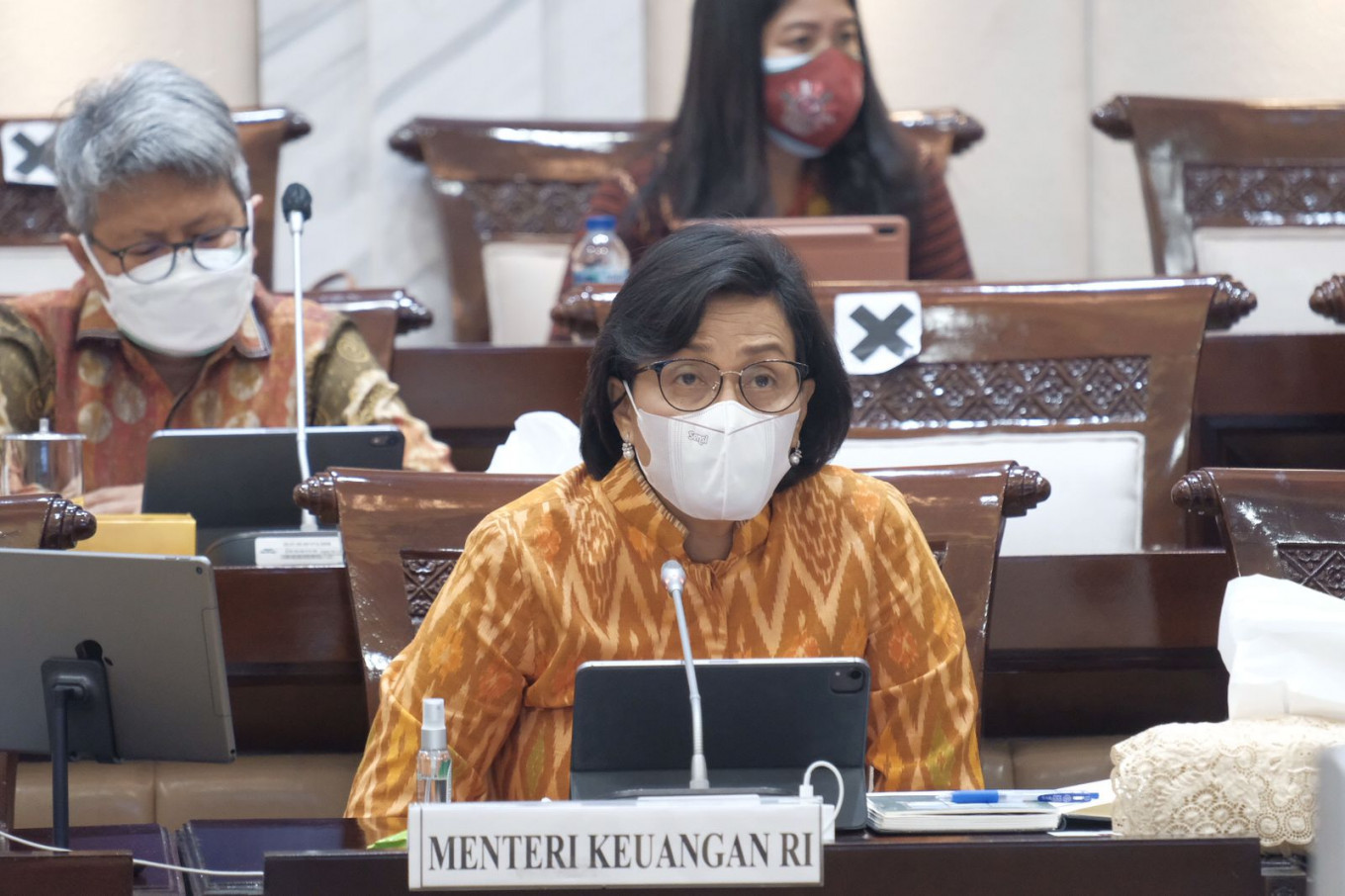Overarching tax reform
The implementation of a multitariff VAT would make the tax system more complex while the institutional capacity of the tax authority remains inadequate.
Change Size
 Finance Ministry Sri Mulyani Indrawati speaks at the House of Representatives about a draft bill on fiscal relations between centers and regions (RUU HKPD) and the bill on the general provisions on taxation (RUU KUP), on Sept. 13. (Finance Ministry/Public relation team)
Finance Ministry Sri Mulyani Indrawati speaks at the House of Representatives about a draft bill on fiscal relations between centers and regions (RUU HKPD) and the bill on the general provisions on taxation (RUU KUP), on Sept. 13. (Finance Ministry/Public relation team)
T
he final bill on the harmonization of tax regulations, which is scheduled to be approved by the House of Representatives sometime this week, tries to implement overarching reform of the tax system, covering administration, policies, legal framework and institution — all designed to increase the tax base and encourage compliance.
The bill will add another layer to the personal income tax (PIT) rates, amounting to 35 percent for an annual income of over Rp 5 billion (US$357,000). The government will introduce multitariffs in the collection of value-added tax (VAT), gradually increasing the rates to a range of 11 to 12 percent and increasing VAT and excise tax objects in a bid to expand the tax base, as well as connect taxpayers’ registration numbers to their nationwide ID card numbers.
The government will also offer tax amnesty to taxpayers willing to voluntarily declare assets accrued between 1985 and 2020. Declared assets will be considered additional income that will be subject to a final tax with rates ranging from 6 to 18 percent.
The challenges to implementing reform are uphill because several of the new tax policies, especially the implementation of the multitariff VAT, would make the tax system more complex while the institutional capacity of the tax authority remains inadequate due to lack of competent human resources and operating budget.
The second-round tax amnesty scheduled from January to June 2022, after the first one from July 2016 to March 2017, has been widely criticized as too generous and would cause only moral hazards. The first tax amnesty did succeed in expanding the tax base, with taxpayers declaring Rp 1.1 quadrillion worth of assets overseas that were previously hidden from the tax authority and Rp 3.6 quadrillion within the country, immediately bringing about Rp 114 trillion in redemption fees.
But then, no policy or law is perfect.
The government is faced with a big fiscal dilemma, especially after the devastating impact of the pandemic almost doubled the budget deficit to over 6 percent of gross domestic product (GDP) and pressed the economy to a contraction of almost 2.2 percent in 2020, while the tax ratio (revenues against GDP) declined to 8.5 percent from an average of 11 percent in 2015-2019, the lowest in the ASEAN region.
Official estimates put the value of assets hidden by Indonesian taxpayers overseas at Rp 11 quadrillion. But the government seemed unable to do anything about those hidden assets despite the implementation of the pacts on the global automatic exchanges of information between tax jurisdictions. In fact, the government is unable to fully acquire the assets of businessmen who have owed the government Rp 110 trillion in debts over the last 23 years due to the absence of a forfeiture law.
Because the government is so strapped for additional revenues, as debt service burdens have reached 18 percent of total revenues and more than 15 percent of total spending, repeating the achievements of the first tax amnesty is quite tempting, despite the moral hazards.
The biggest challenges ahead are how the government will gradually phase in the implementation of the numerous tax reform measures in line with the institutional capacity of the Tax Directorate General.









